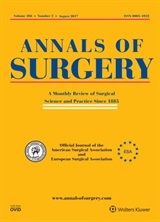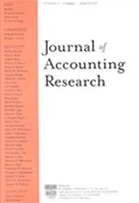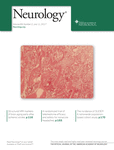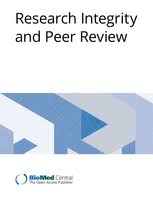 Yes, yes, we know: It’s easy to publish “fake” papers in journals and expose the inherent flaws of academic publishing. We’ve covered many such stings, but there are simply too many for us to cover all. Still, occasionally one is just too clever to ignore.
Yes, yes, we know: It’s easy to publish “fake” papers in journals and expose the inherent flaws of academic publishing. We’ve covered many such stings, but there are simply too many for us to cover all. Still, occasionally one is just too clever to ignore.
On Saturday, the pseudonymous blogger Neuroskeptic announced that they had written a Star-Wars themed paper that had been accepted by three journals. On Monday, Neuroskeptic announced that two of the journals appear to have removed the papers.
So what’s the point of this latest academic prank? As Neuroskeptic writes on the Discover blog:
Continue reading May the sting be with you: Another journal prank, too good to overlook
 The Annals of Surgery has retracted a paper that used only male pronouns to describe surgeons following outcry from readers.
The Annals of Surgery has retracted a paper that used only male pronouns to describe surgeons following outcry from readers.
 A volunteer researcher at Florida Atlantic University fabricated the results of mouse experiments over a 14-day period in June, 2016, according to a
A volunteer researcher at Florida Atlantic University fabricated the results of mouse experiments over a 14-day period in June, 2016, according to a  Different journals follow different editorial policies — but we’ve never seen any charge money to authors who want to appeal an editorial decision. Until now.
Different journals follow different editorial policies — but we’ve never seen any charge money to authors who want to appeal an editorial decision. Until now.
 Journals have posted two corrections alongside papers by
Journals have posted two corrections alongside papers by  A patient’s “unusual” brain cyst excited several researchers in China so much they published a paper about it in a major journal. Soon a reader identified a glaring mistake: the authors had described the cause of the cyst incorrectly.
A patient’s “unusual” brain cyst excited several researchers in China so much they published a paper about it in a major journal. Soon a reader identified a glaring mistake: the authors had described the cause of the cyst incorrectly.  Are there a limited number of ways to describe the the background and methods of an experiment? Once something has been written well, and vetted by editors, is it a waste of time to rewrite it ? And if text has been reused, how should that be indicated — if at all?
Are there a limited number of ways to describe the the background and methods of an experiment? Once something has been written well, and vetted by editors, is it a waste of time to rewrite it ? And if text has been reused, how should that be indicated — if at all?